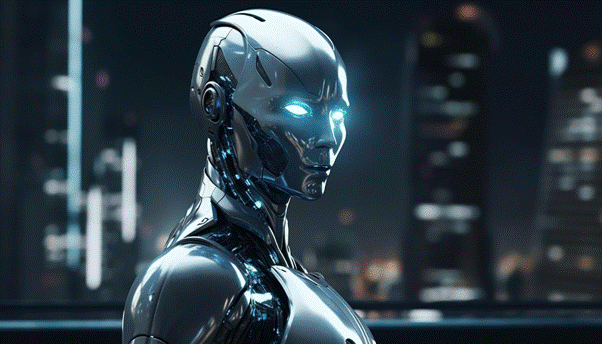In the middle of Canada, along the St. Lawrence River, where new ideas are always happening, Montreal shines as the leader in AI, “Silicon Valley North.” This bilingual city in Quebec has changed from a cultural hub to a world leader in machine learning. It has a mix of French style, English practicality, and fierce independence. What made a province known for poutine and winter carnivals the center of machine minds? It’s about smart moves, risky bets, and luck coming together in the City of a Hundred Steeples.

From Hydro to Hyper-Intelligence
Quebec’s journey into AI began with the James Bay Project’s booming hydropower dams and industrial power. During the “Quiet Revolution” of the 1960s, a lot of money was put into study and education. This made McGill and Université de Montréal centers for computer science that drew creative people.
It wasn’t until the 1980s that neural networks were created, with Yoshua Bengio taking the lead. He started his Mila center in 1993 as a small lab. It has grown into a world giant with more than 200 experts and ties to Google and Meta. If Quebec hadn’t put so much emphasis on intelligence early on, North America’s AI boom might not have happened. Along with this rise in computer creation, customization powered by AI is also good for the entertainment industry. Enthusiasts across Canada are increasingly collecting a $50 free Bitcoin no deposit bonus for crypto players on platforms that use machine learning to tailor promotions and enhance engagement.
With tax breaks like the Refundable Tax Credit for Multimedia and IT, Quebec stands out. This is because it spends billions of dollars on research and development at a lower cost than California. A lot of talented people from India, France, and China are moving there, and events and cheap living costs are helping the economy grow. In 2023, Quebec AI startups raised more than $1B, more than many U.S. states (CB Insights).
Pioneering Minds: The Architects of AI Ascendancy
At the top are schools that combine smarts with guts. Natural language processing has come a long way thanks to McGill University’s deep learning labs, which power everything from apps to climate models. At the same time, Polytechnique Montréal is developing robot AI. They seek to develop crisis response and elderly care bot groups. This isn’t lab research. It’s real-world magic being tried in places like the busy Port of Montreal.
It’s not just Yoshua Bengio in this group of gods. Geoffrey Hinton, known as the “Godfather of AI”, learned a lot at the University of Toronto, but he says that the joint culture in Quebec gave him an edge. Another smart person at McGill is Doina Precup, who is Romanian and Canadian. Her reinforcement learning algorithms are teaching AI to play chess better than grandmasters or eerily accurately predict traffic jams. These clever folks do more than code. Ethics are also being considered to ensure AI improves mankind rather than replaces it.
Economic Engines: AI’s Ripple Through Quebec’s Economy
The rise of AI in Quebec isn’t just an idea. It’s changing people’s lives right now. Over 20,000 people work directly in the field, and another 100,000 work indirectly in data centers and ethical advice. Co-working places are all the rage in tech hubs like Quartier des Spectacles, where startups pitch to venture capitalists over coffee. Companies like Element AI, which ServiceNow bought for $650 million in 2020, are great examples of the gold rush: they started in Montreal and grew all over the world.
But the cross-pollination is what makes me happy. AI is making its way into Quebec’s usual strong points, like healthcare, engineering, and games. In medicine, AI scans at CHUM hospital can find cancers 95% of the time, which saves lives and cuts costs. Bombardier’s AI-optimized aircraft utilize less fuel, helping the environment. Also in games? The fun begins there. Quebec corporations like Ubisoft’s massive Montreal studio utilize machine learning to create Assassin’s Creed settings with odd NPCs.
Quebec’s GDP is booming thanks to this economic magic. A government study says that AI added $4.5 billion to the province’s income in 2022, and it’s expected to add $15 billion by 2030. There are some problems, like talent wars, where people from Toronto and Boston come to Quebec to work, but Quebec fights back with grants and fast-tracked immigration, which stops the brain drain.
Talent Magnet: Why the World’s Best Brains Flock to Montreal
The attraction of Montreal? Intangibles are what it is. The summers are full of Jazz Fest, and the winters are ruled by Igloofest. Living here inspires creativity. Researchers can make their pay go further because the cost of living is 30% less than in Vancouver. Fluency in two languages is a gift. French training school students code in Python during the day and debate ethics at night.
Quebec’s government also connects individuals. Startup and AI responsibility ecosystems get $500 million from the “Stratégie québécoise en intelligence artificielle”. Many of the 10,000 people who attend NeurIPS each year create firms. In a positive cycle, good people get money, which leads to more good people. But problems still loom. Being careful is needed because of ethical problems like biased algorithms and job loss. AI has “existential risks,” and Bengio himself warns of them and calls for safety nets. Quebec also leads in this area because it has rules that require hiring tools and other high-stakes AI to be open and honest.
Key Milestones in Quebec’s AI Timeline
To really get a sense of how rapidly Quebec has become a world leader in AI, check out these key events that led to the province’s ascension from a modest aspiration to worldwide dominance:
- Mila (formerly the Quebec AI Institute) was founded by Yoshua Bengio, establishing deep learning in Montreal’s academic setting.
- Montreal researchers’ ImageNet AlexNet win propels neural networks into the worldwide limelight and solidifies the city’s leadership in the deep learning revolution.
- Quebec launches $100 million AI plan to boost startup ecosystems and attract international VCs.
- Montreal-born Element AI’s $650 million purchase by ServiceNow proves Silicon Valley-scale exits are possible.
- Mila connects with over 50 industry giants and trains over 1,000 students yearly, strengthening the talent pipeline.
Future Frontiers: Quebec’s Blueprint for Tomorrow’s AI
Looking ahead, Quebec sees AI as a way to solve problems in society. Indigenous communities in the cold north benefit from IVADO’s wildfire prediction models in climate action. Francophone youngsters learn in ways that suit them with adaptive instructors, reducing the urban-rural divide.
Quebec’s edge is that it is open. In contrast to U.S. labs that are closed, Montreal lives on shared code. Mila’s GitHub repos affect projects around the world. This way of thinking draws in social hackers and thinkers, who make sure AI develops in a responsible way.
Strategies for Aspiring AI Hubs Worldwide
If other towns want to follow Montreal’s rapid rise, here is a tried-and-true plan taken from Quebec’s playbook of policy, emotion, and realism:
- Invest in education
Heavily subsidize PhDs, master’s programs, and intensive bootcamps to cultivate a homegrown talent pipeline that rivals Ivy League output without the sticker shock.
- Incentivize collaboration
Give public-private partnerships aggressive tax advantages and matching funds to convert colleges into launchpads for entrepreneurs and companies to innovate.
- Cultivate culture
Combine an unrelenting work ethic with world-class festivals, cheap housing, and dynamic nightlife to make your city a genius magnet rather than an exporter.
- Prioritize ethics
Establish fairness audits, bias testing, and transparent governance from the start to establish confidence and avoid regulatory blowback.
- Embrace diversity
Champion multilingual policies, fast-track skilled immigration, and celebrate cultural fusion to attract the world’s sharpest minds and spark unexpected innovation.
The Human Spark in Machine Minds
In the end, Montreal’s AI wonder isn’t about tech. It’s about the heart. Like the writers of Quebec, from Leonard Cohen to Michel Tremblay, hackers argue about awareness over croissants in bars along Rue Saint-Denis. While tech is mostly cold reasoning, this emotional heart reminds us that real wisdom comes from understanding others.
As Quebec solidifies its position as king of the world, everyone looks on. The machine minds in Montreal aren’t just thinking. They’re also making things, like healing diseases and making dreams come true. In a time when people are divided, this place shows that difference and unity can make progress. What’s next? It’s French-Canadian, very new, and very much living.





